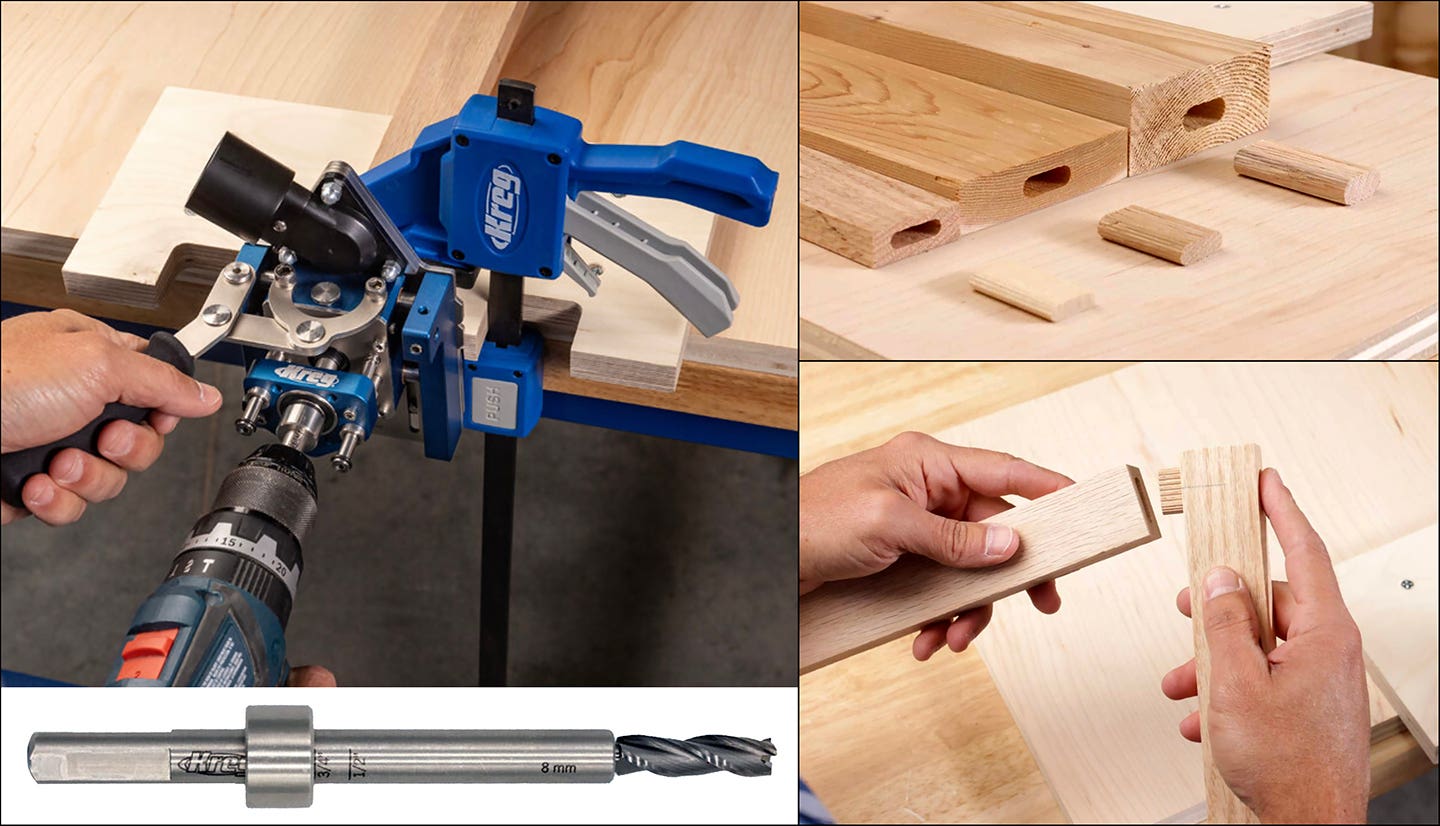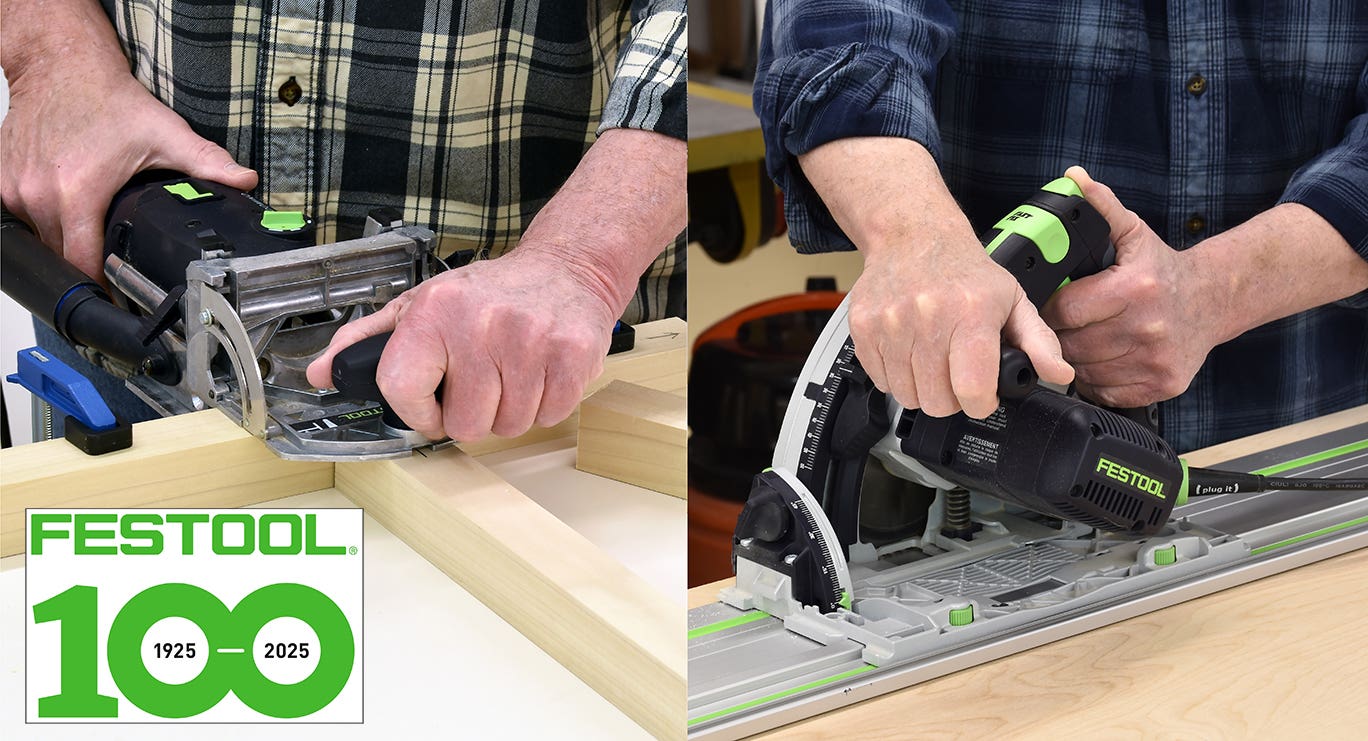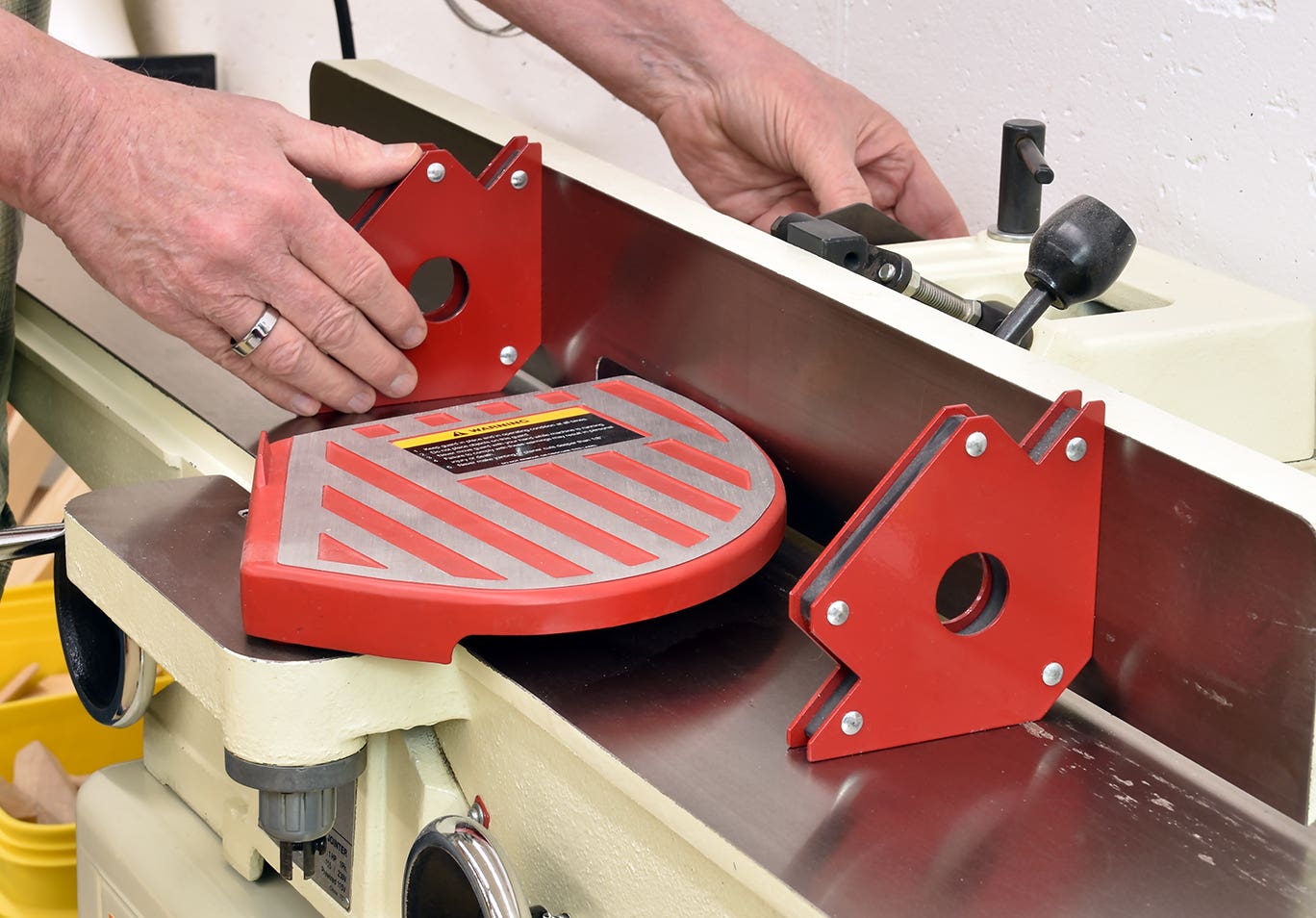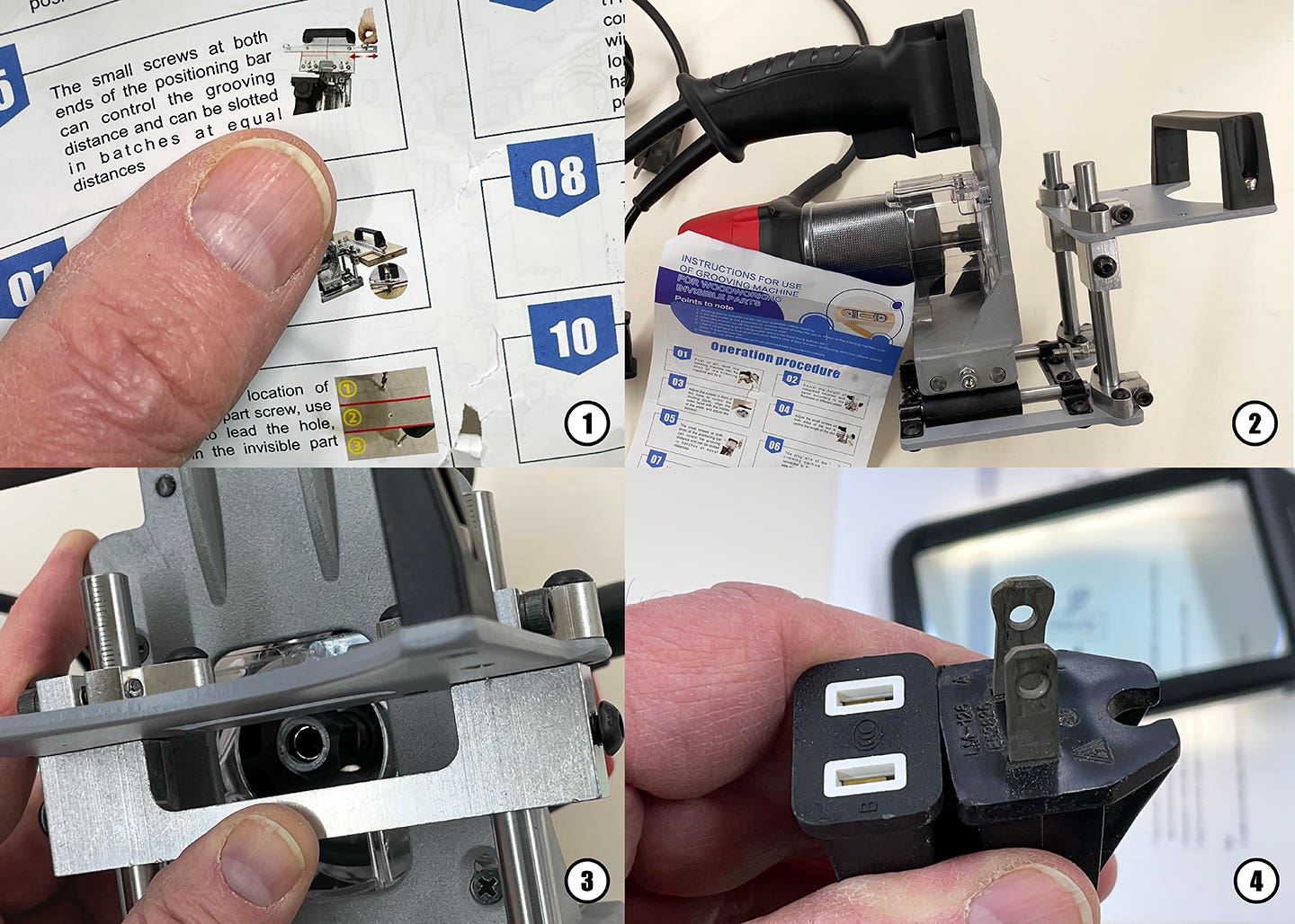Underground market poses a threat to you
How can any woodworker or woodworking business hope to survive against competition that isn’t burdened by licensing requirements or fees, insurance costs or even taxes? Several years ago, one study…
How can any woodworker or woodworking business hope to survive against competition that isn't burdened by licensing requirements or fees, insurance costs or even taxes? Several years ago, one study reported that Greece, with all of its financial woes, had a shadow economy that was a whopping 30 percent of its GDP. In this country, the Government Accountability Office, Congress's watchdog agency, estimates the income tax "gap," the difference between taxes owed and taxes actually paid, is in the hundreds of billions of dollars.
Admittedly, many businesses benefit from the low wages demanded by workers from the underground economy. And the economy as a whole may also benefit from the reduced prices charged for goods and services by individuals and businesses working in the shadows. But how can any legitimate woodworking business hope to compete?
Competing with shadows
The underground economy entrepreneur is not a business owner reporting small profits while living beyond all visible means. The underground economy entrepreneur is actively working to maintain a low economic level that does not draw attention. Some may hold a daytime job and operate in the underground by having a sideline business for unreported cash.
The businesses and individuals participating in the so-called "underground economy" usually want to avoid government regulations and may not be licensed in their trades. For example, a woman may offer to cut and style hair in her home for $10 in cash, while a licensed stylist will charge $30 for the same haircut in a salon. Or a tree trimmer will charge only $375 because the state requires licensing for jobs above $400. In this case, the hair stylist and the tree trimmer can get by with the smaller earnings because they do not carry the overhead costs or the tax responsibilities.
The underground business capitalizes on the "tax wedge," the difference between labor costs paid by an employer (gross wages) and the net wage received by an employee. An employer will pay wages of $50 per hour, which includes payments to payroll tax, federal unemployment tax, Medicare, retirement benefits, workers' compensation insurance, etc., but the employee will net a wage of only $30 per hour. In the underground economy, the same worker will charge $30 per hour in cash for the same work and the net result will be the same.
With the help of an uncle
The Internal Revenue Service, the not-always-so-silent partner of most wood shops and businesses, is well aware of the underground economy and has published a guide for its auditors to find and collect taxes from individuals and businesses operating in the shadows.
Although the tax rules currently require a woodworking business to report annual payments in excess of $600 made to an individual in order to be tax-deductible - and may soon require all payments in excess of $600 made to businesses to be supported by filing the Form 1099 information return - workers in the underground economy take extreme care to make sure income cannot be reported on a 1099.
A key trait of the underground worker or business is that they will try to always get payments in cash. If that is impossible, they will provide a false Social Security number. Another tactic the underground business may use is to explain that he or she is the sole shareholder in a corporation with the same name, i.e. John Smith Plumbing (just make it out to John Smith.)
The IRS has long known the best way to locate members of this shadow economy is through cash invoices found in examinations of businesses that have made payments to these individuals and businesses. When the IRS examiner encounters payments for goods or services made in cash and verified by questionable, possibly handwritten, invoices, it is very likely the taxpayer paid a so-called "undergrounder" to do the work.
The IRS usually asks further questions to determine how the taxpayer located the underground worker and if the worker is known to work for other local businesses or if they worked on personal jobs for the taxpayer. There are a number of other methods used by the IRS to find those operating in the underground economy.
The underground online
Cash plays an essential role in every community and the reality is that the nature of cash, because it is easy to use anonymously, means there will always be an opportunity for tax evasion by people dealing in cash. The risk is greatest in businesses with large volumes of cash turnover and weak or nonexistent internal controls. Fortunately, the use of cash and cash-like items is not as undetectable as its users believe.
The IRS is also aware digital cash (also known as e-money, electronic cash or digital currency) is just like real cash, except it's not tangible. Electronic funds transfer, direct deposit, PayPal and WebMoney are all examples of electronic money.
Blowing the whistle
All too often, partnering with the IRS is the only way a woodworker or woodworking business can compete against those in the underground economy. The IRS Whistleblower Office is legally obligated to pay awards to people providing specific and credible information if that information results in the collection of taxes, penalties, interest or other amounts from noncompliant taxpayers. Remember, however, that the IRS is looking for solid information, not an "educated guess" or unsupported speculation.
Because they are also looking for a significant federal tax issue - this is not a program for resolving personal problems or disputes about a business relationship - the law provides for two types of awards. If the taxes, penalties, interest and other amounts in dispute exceed $2 million and a few other qualifications are met, the IRS will pay 15 percent to 30 percent of the amount collected.
The IRS also has an award program for other whistleblowers - generally those who do not meet the dollar thresholds of $2 million in dispute or cases involving individual taxpayers with gross income of less than $200,000. The awards through this program are less, with a maximum award of 15 percent up to $10 million. In addition, the awards are discretionary and the informant cannot dispute the outcome of the claim in tax court.
Unfair competition
Many woodworking professionals today find themselves competing with underground businesses. The operator of an underground business can usually live on less income because no federal or state income taxes, workers' compensation taxes, payroll taxes, insurance or Social Security payments are made. An underground business operator earning $40,000 can provide his family with the same lifestyle a wage earner can provide with $60,000. As a result, with very little overhead, they can provide their services or sell their goods at a lower cost.
The IRS has developed and published a number of Audit Technique Guides, the latest of which reveals how much they know about "cash-intensive businesses," and the underground economy. While many of the strategies employed by the IRS's auditors may or may not work for a woodworking shop, the guides should be a reminder of just how much the IRS knows and a warning that payments made to the underground worker must be reported via a 1099 if the woodworking business hopes to claim a deduction for the outlay.
Mark E. Battersby is a freelance tax and financial writer based in Ardmore, Pa.
This article originally appeared in the November 2010 issue.







